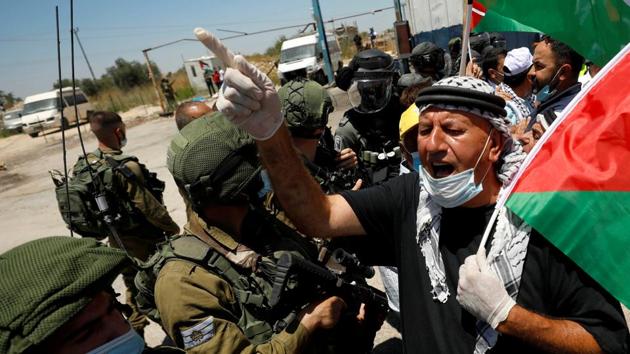Table of Contents
In a significant and contentious move, Israel’s parliament has reignited the debate over military conscription for ultra-Orthodox Jews. The decision has come at a time of heightened tension within the country, underscored by the ongoing conflict in Gaza and political unrest. This development has not only stirred emotions within the Knesset but has also exposed deep rifts in the government and among the public.
A Contentious Vote Amidst a Tense Atmosphere
The Knesset, Israel’s parliament, voted on Tuesday to revive a controversial law aimed at conscripting ultra-Orthodox Jews into military service. The vote, passing with a narrow margin of 63 to 57, highlighted the fractious nature of Israeli politics. Prime Minister Benjamin Netanyahu has backed this legislation despite significant opposition from various quarters, including his own Defence Minister Yoav Gallant, who criticised the measure for “not going far enough”.
Gallant, voicing his dissent after the parliamentary vote, emphasised the importance of national unity and shared responsibility. “We must not play petty politics on the backs of the great fighters of the army,” he stated.
Political Fallout and Public Reactions
This legislative move comes on the heels of a significant political shakeup. Retired general and war cabinet minister Benny Gantz, a centrist, exited the government, citing disagreements over the strategic direction of the Gaza war. His departure, along with the criticism from opposition leader Yair Lapid, underscores the volatile political landscape. Lapid accused Netanyahu of pushing the conscription law to maintain political power rather than addressing the issue substantively.
Lapid expressed his outrage on social media, describing the vote as “one of the most despicable moments in the history of the Knesset” and condemning the government for enacting a “law of evasion.” This sentiment echoes the frustration felt by many Israelis who view the exemption of ultra-Orthodox Jews from military service as unfair.
The Legislative Process and Future Implications
Following the vote, the conscription bill will undergo further scrutiny in parliamentary committees before returning for additional readings. The proposed legislation aims to gradually integrate some ultra-Orthodox Jews into military service, a community traditionally exempt in favour of religious study. The bill, originally put forward by Gantz in 2022, includes provisions for recruitment quotas and alternative service options.
Despite these measures, critics argue that the bill will not significantly increase the number of ultra-Orthodox individuals serving in the military. The religious parties within Netanyahu’s coalition have ensured that the bill includes changes favourable to their interests, highlighting the compromises made to keep the coalition intact.
Historical Context and Judicial Pressure
The exemption of ultra-Orthodox Jews from military service dates back to the founding of Israel. However, this arrangement has been a point of contention, with the judiciary repeatedly ruling that the blanket exemption is unconstitutional. The recent vote is seen as an attempt to address the court’s demands for legislative action on the issue, which has seen numerous failed attempts over the years.
The revived bill seeks to balance the need for equitable conscription with the sensitivities of the ultra-Orthodox community, known in Hebrew as Haredim. While it aims to limit exemptions and introduce quotas, the effectiveness of these measures remains in question.
The Knesset’s decision to advance the conscription law for ultra-Orthodox Jews underscores the complex and often contentious nature of Israeli politics. As the legislation moves through the parliamentary process, it will continue to evoke strong reactions and debate. The outcome will not only impact the ultra-Orthodox community but also shape the broader discourse on military service and national duty in Israel.
